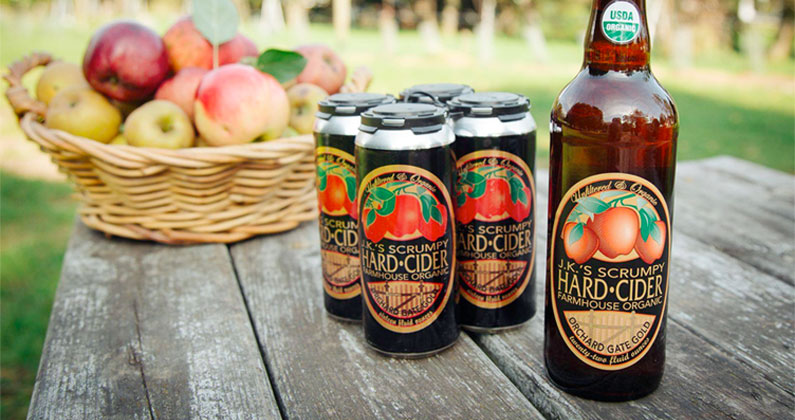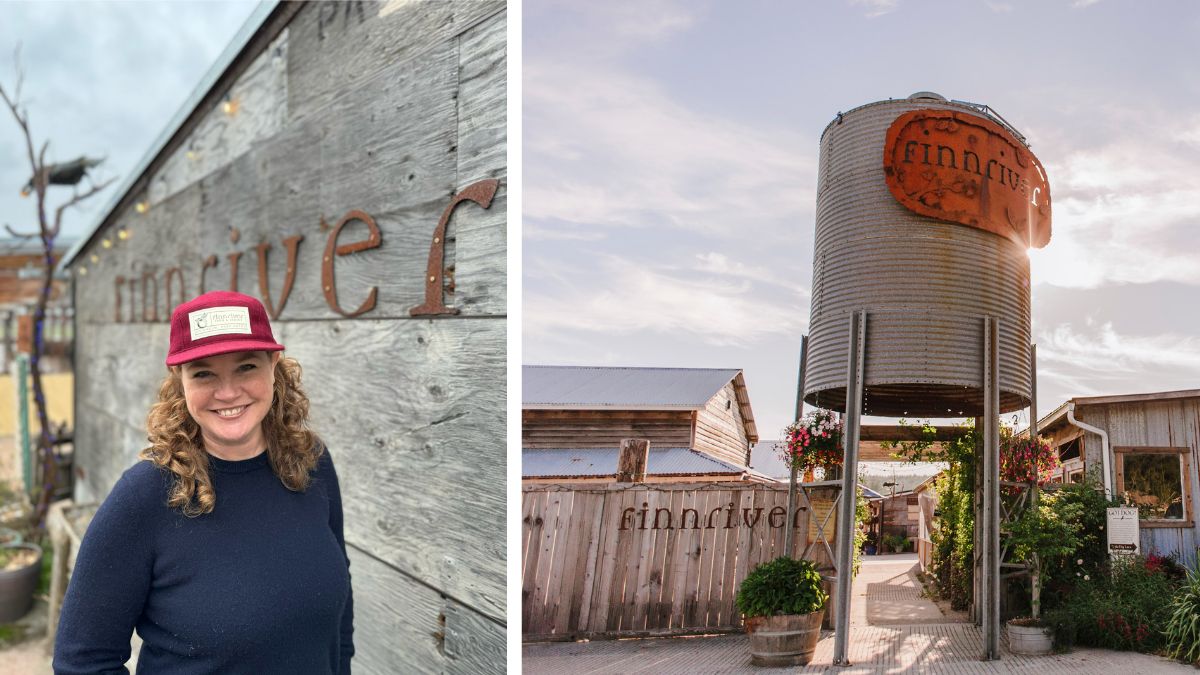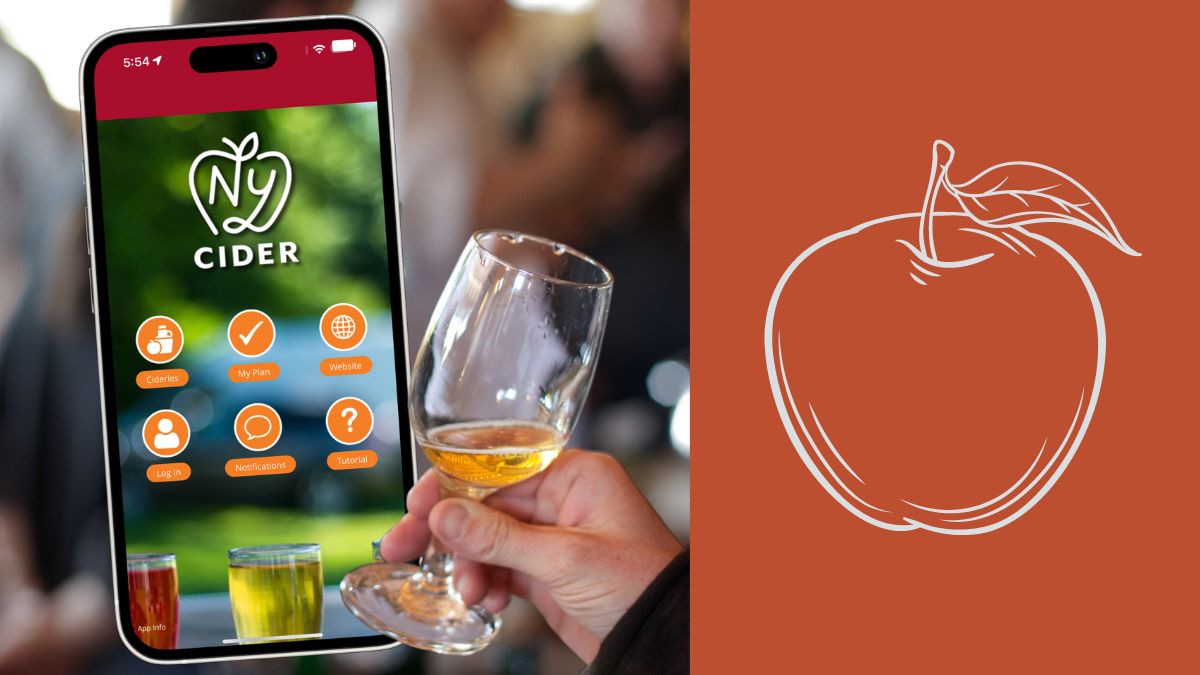In the 1990s, then-distributor Bruce Wright spent a good amount of his time selling wine across Michigan. But one day, as Wright recalls, a man approached him — his appearance gruff and disheveled, in dusty Carhaart pants. It seemed like he had just left a farm. The man carried one bottle of cider for Wright to try.
Wright was not a cider drinker at the time, but took the bottle home with him. He says he found the cider captivating after just one taste. Since then, Wright teamed up with that man, Almar Orchards grower and JK’s Farmhouse Cider maker Jim Koan, as sales director and to revamp the farm-based cidery into one of Michigan’s resilient and longstanding organic producers.
JK’s Farmhouse has a storied past. The trees of Almar Orchards have inhabited Flushing, Michigan, since before the Civil War. Cider sales saved the Koan family’s farm from the burdens of the Great Depression, travelers coming far and wide to try “Special Farm Cider” during the Prohibition period. Decades later, Wright noticed apple orchards continually being torn out due to competition with imported concentrates. Again, cider played an integral role in this orchard’s conservation.
“We did this to preserve the farm,” Wright says. “Jim’s No. 1 priority isn’t cider, but growing apples. It’s his joy, his passion. Cider gives him an avenue to fulfill his work.”
And Koan’s work encompasses the well-established lineup: the original JK’s Scrumpy, Saskatoon berry-infused Northern Neighbor, Pair Perry and several seasonals. JK’s Farmhouse also blends its own non-alcoholic switchel, the Haybaler’s Punch, that “acts as an electrolyte; an old-fashioned Gatorade,” explains Wright.
JK’s maintains to sourcing its own, organic ingredients. “It’s called ‘farmhouse’ because it’s made on a farm,” says Wright, “We’ve taken classic styles, bastardized them and put our own stamp on it with the indigenous ingredients we have access to.”
Most of all, JK’s Farmhouse holds organic farming to be one of its steadfast values since the full conversion to organic over 20 years ago. The farm avoids insecticides and recruits flocks of guinea fowl to take care of insects; a practice used from generations before. Berkshire pigs inspect the land, cleaning up fallen fruit often holding the plum curculio, an infamous apple pest.
Wright references other odd tricks that Koan uses to maintain the farm’s organic character, including pasting non-drying glue to a red cup and hanging it from the tree to entice insects. “Now the red cup is the shiniest, best-looking ‘apple’ in the tree,” Wright jokes.
The cidery team didn’t anticipate the American cider renaissance of the recent years, but have gladly welcomed it. “We didn’t have a marketing budget or millions of dollars,” Wright notes about the cidery’s beginnings. “But we’ve been humbled by the organic growth we’ve been able to maintain.”
What Wright notices about the current cider industry is its ability to maintain healthy competition while also being collaborative. “There are other kinds of cideries making cool products, trying to be unique and working together,” he says.
And with a wide distribution of more than 40 states, Japan and Scotland, JK’s Farmhouse has much to anticipate in the future.






